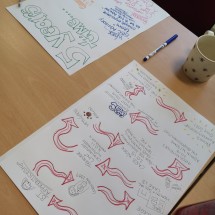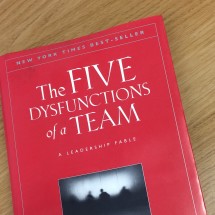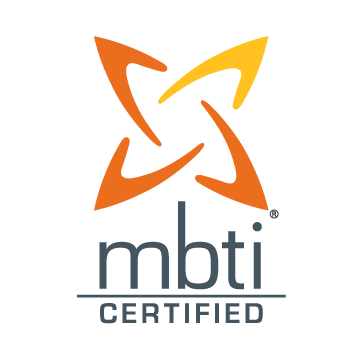Six key tips for learning at work

Watching kids learning to swim this week reminded us of six key tips to learning a new skill, habit or behaviour at work.
1. Break it down into manageable chunks.
In swimming that might even mean you work on the technique of just one arm in order to improve your whole stroke. In business, where you are working on your people management, that might mean starting by working on scheduling regular time with your direct report, or practicing the habit of keeping good notes in between meetings so you turn up more prepared.
2. Include some ‘off line’ practice.
Getting practice which isn’t under the pressure of the ‘real world’ is a really useful way to develop a base level before being put on the spot. For swimmers that means practising starts and turns in training so they are ready for the race; or working on technique during an easy swim rather than trying to go fast all the time. In your professional life this is just as important, but much less likely to happen. If there is a skill you are new to or a behaviour you want to learn you need to find ways to practise which aren’t in the spotlight. If you are working on your communication, find a buddy who is willing to film you introducing yourself, or delivering a speech or presentation. Try being more assertive with your friends and family. If you’re working on your written communication can you find a way in your personal life to write an article or contribute to a blog?
3. Don’t wait too long before you try it out for real though.
There are lots of young swimmers who are really good in training but fall to pieces at competitions. Don’t let that happen to you with your new skill. Make sure you add a bit of ‘real life’ into your plan as soon as is feasible to make sure that you’re not just good in theory.
4. Accept that you will make mistakes.
I don’t think anyone would be surprised to see a young/new swimmer miss the wall on their turn or perhaps get disqualified for technique which isn’t quite perfect. It would be chalked up to experience and barely considered. It can feel more high pressure at work though, and as adults we can often shy away from making mistakes in public. Finding a way to accept your own mistakes as you learn, and those of your team is an important part of creating an environment where you can all learn and develop.
5. Keep practising.
There’s a reason why sports people train a lot, and it isn’t just for fitness. Practice makes perfect – we all know it, so don’t rest on your laurels at work. Unless you are absolutely brilliant at something and it is totally second nature you need to keep revisiting it to make sure you are performing to the best of your ability.
6. What next?
Lifelong learning is one of the key five steps which health experts recommend for good mental health and the management of anxiety (read more about that here). But more than that if you dwell too long on one particular skill you can “overcook” and at the very least will stop making such rapid progress. In fact you could even start overthinking and damaging your performance.
Our swimmers are moving on to open water and long distance now. What will you try?









